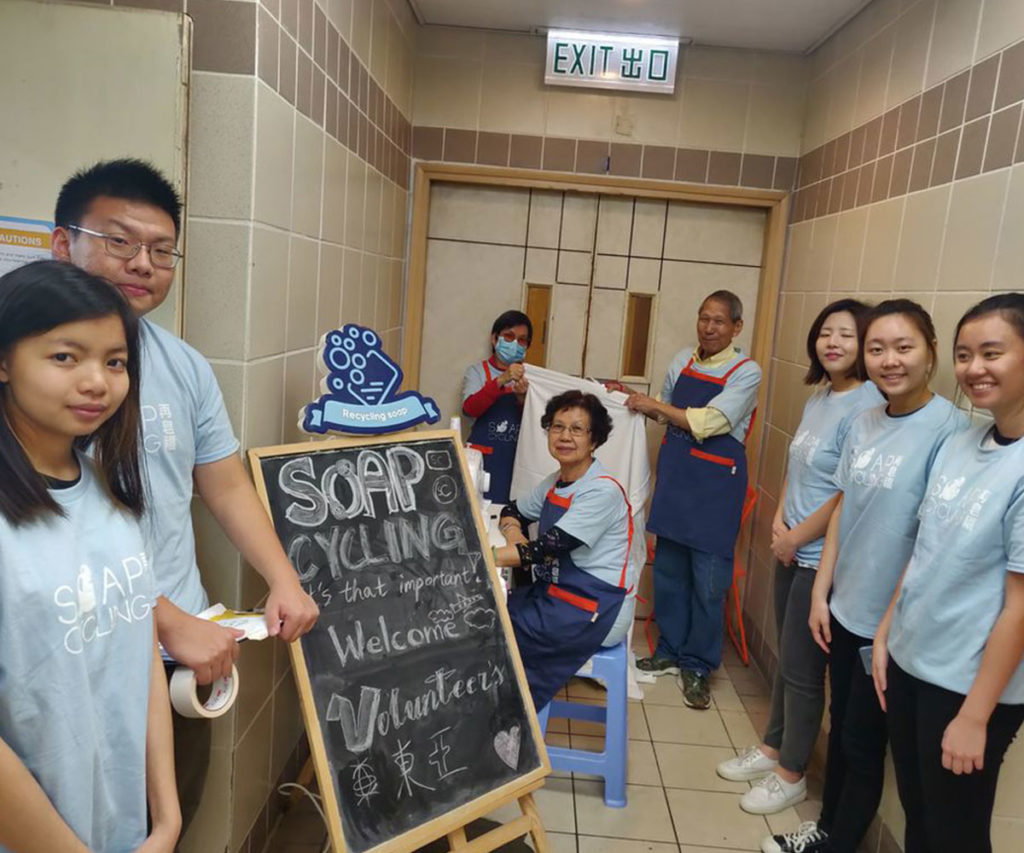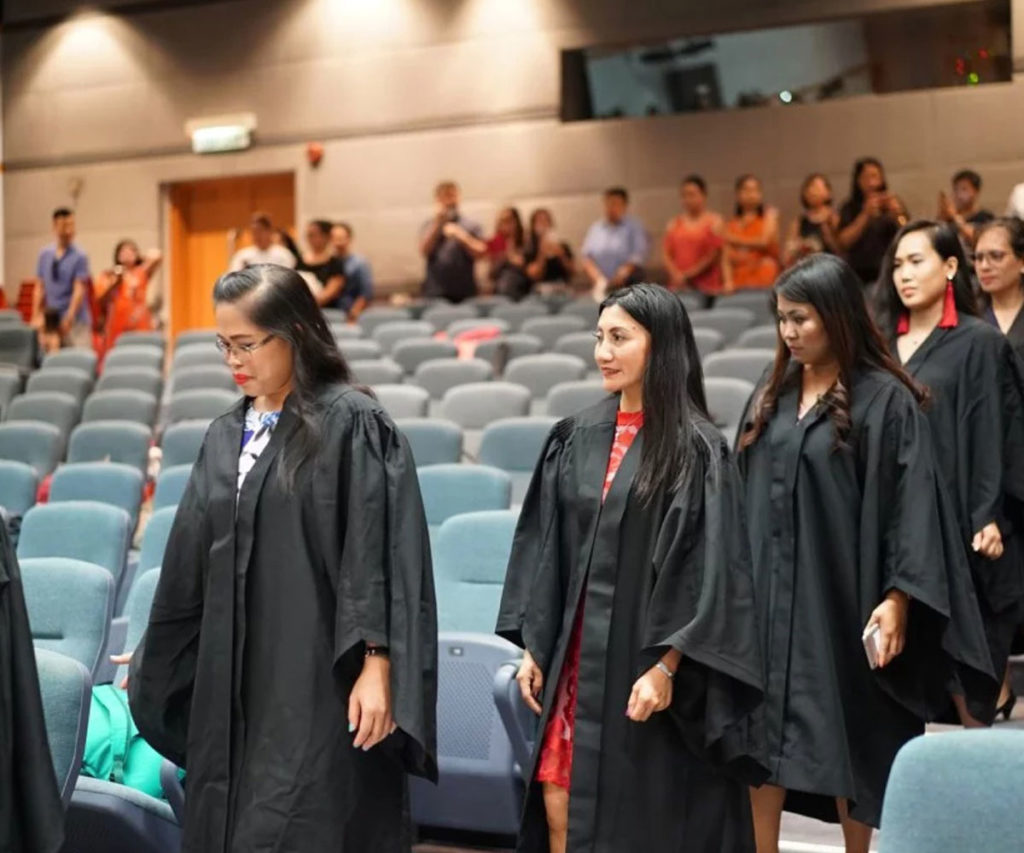On 14 April 2025, the Impact Lab held its final seminar for the semester, “Systems Change Workshop”, bringing together students for an engaging and thought-provoking session focused on the pressing issues of the Hong Kong housing market.
Unpacking the Hong Kong Housing Crisis
The seminar kicked off with an exploration of the challenges facing the Hong Kong housing market. Students were reminded of the critical issues: skyrocketing property prices, an acute shortage of affordable housing, and long waiting times for public housing. These challenges not only affect living conditions but also contribute to rising inequality and social unrest in the city.
Lucia Loposova, the Education Manager of Foundation for Shared Impact (FSI), emphasized the importance of capturing the essence of these issues. She encouraged attendees to reflect on their experiences and share impactful stories, as the approach will not only foster personal growth but also create a dialogue about the collective challenges they face.
Exploring Systems Change Using the Inverted Pyramid Model
The Inverted Pyramid Model: The Six Conditions of Systems Change
Following the introduction, the seminar delved deeper into the Inverted Pyramid Model, which highlights six conditions crucial for systems change. Students discussed mental models, power dynamics, relationships, resource flows, practices, and policies. For example, the prevailing belief that real estate is primarily an investment rather than a fundamental human right was identified as a significant barrier to achieving equitable housing solutions.
David Bishop, Co-founder and Director of FSI and Impact Lab Course Instructor, elaborated on the concentration of decision-making power among government officials and property developers, which often sidelines the voices of lower-income residents. He shared a compelling story about Hong Kong’s turbulent history, illustrating how the city was once fraught with violence and uncertainty.
David Bishop, Co-founder and Director of FSI and Impact Lab Course Instructor, talking about the Inverted Triangle Model
Lessons from the Past
David recounted his father-in-law’s experience in the 1960s, a period marked by unrest and fear, where the streets of Hong Kong were not just bustling with life but riddled with dangers, including hidden explosives. He highlighted how, despite these challenges, Hong Kong has developed remarkably since then, transforming into a vibrant metropolis known for its resilience and economic dynamism. However, he pointed out that while this development is a significant achievement, it has also led to new challenges, particularly in housing affordability.
Reflections on Nostalgia and Future Aspirations
At one point during the seminar, Lucia posed an intriguing question to the attendees: “If you could go back to any time period, which would you choose?” This question ignited a lively discussion, filled with nostalgic reflections and humorous responses.
A student shared her desire to return to the 1960s and 70s, longing for the simpler times of her parents’ youth. Another reflected on the early 2000s, recalling a period that felt more carefree and less consumed by technology. One student wished for a return to a time when the job market wasn’t as tough as it felt now, while another yearned for the pre-COVID era, missing the days before the pandemic altered societal norms.
On the other hand, some students chose to embrace the present, valuing the conveniences and advancements of modern life, such as technology, connectivity, and the human rights gained over the years, like women’s suffrage. Others were more adventurous, wishing to leap into the future out of sheer curiosity about what lies ahead, wondering if the world would thrive or face dire challenges by then.
Nguyen Tran Minh (Benedict), an Impact Lab student working on the Suen Chi Sun Hall and special projects, expressed his curiosity to leap into the future
This exchange not only revealed the different perspectives of those present but also highlighted a common yearning for various aspects of life that connect us across generations.
Collaborative Solutions to Improve the Housing Market in Hong Kong
In small groups, students brainstormed potential solutions to improve the housing market. They adopted a systems thinking approach, analyzing the root causes of the housing crisis and considering holistic, inclusive strategies. Here are some key ideas that emerged from their discussions:
- Redefining Housing as a Human Right: Students called for a shift in the mental model surrounding housing, advocating for its recognition as a fundamental right rather than merely a market commodity.
- Policy Reforms: Proposals included changes to tax structures that would discourage multiple property ownership and promote the development of affordable housing. For instance, increasing taxes on second homes could incentivize owners to sell or rent out their properties.
- Enhancing Public Housing: Allowing public housing tenants to sublet their units could increase flexibility for families. This flexibility could enable tenants to match their living arrangements with job opportunities closer to their workplaces. As a result, shorter commutes can be achieved, ultimately improving the overall quality of life for these families.
- Broader Economic Diversification: Students suggested reducing reliance on the finance sector for tax revenues and diversifying the economy to mitigate the impact of real estate fluctuations.
- Community Engagement: Building stronger relationships between government agencies, developers, and community organizations was emphasized as crucial for developing effective housing policies.
Patrick McCourt, an Impact Lab student working on the Suen Chi Sun Hall and special projects, provided insights from his group on the topic of Hong Kong’s housing market
Embracing the Role of Change-Makers
As the seminar drew to a close, Lucia and David reinforced the notion of creating systems change. They reminded the participants that true change requires not just understanding but also sacrifice. David added, “If you are going to call yourself a changemaker, understand that you are going to come up against people who have power, and you are directly trying to break that source of power, and that’s going to be hard. You will need to think about what you are trying to change, what systems you are trying to break, what you will need to give up and sacrifice, and how your life will change as a result.” This sentiment resonated deeply with the participants, who were encouraged to think critically about their roles in enacting change within their communities.
Lucia and David also shared a powerful quote from Mahatma Gandhi:
“We but mirror the world. All the tendencies present in the outer world are to be found in the world of our body. If we could change ourselves, the tendencies in the world would also change. As a man changes his own nature, so does the attitude of the world change towards him. This is the divine mystery supreme. A wonderful thing it is, and the source of our happiness. We need not wait to see what others do.”
This served as a poignant reminder of the personal responsibility each student has to contribute to societal transformation.
Inspiring a New Generation of Advocates
The seminar fostered an environment of collaboration, critical thinking, and proactive problem-solving. Students left with a deeper understanding of the complexities surrounding the Hong Kong housing market and the tools necessary to advocate for meaningful change. As they prepared for their final projects and the upcoming farewell gathering, the insights gained from this seminar could help shape their contributions to the community and beyond.
Patrick McCourt, an Impact Lab student working on the Suen Chi Sun Hall and special projects, expressed his enjoyment of the seminar, stating, “I thoroughly enjoyed it. It was great to connect with others and discuss important problems while gaining insights from different cultures.” Jora Lan Gao, an Impact Lab student working at Soap Cycling, added, “I thought it was a lot of fun. It was inspiring, and I enjoyed the interactions. I learned a lot about Hong Kong that I didn’t know before, which made me think more about my surroundings.”
Hsu Latt Shwe Yi (Sue), an Impact Lab student working at FSI, remarked on the seminar’s focus on pressing housing issues: “I found it quite interesting as it tackled the need for systems change in Hong Kong. Exploring the Reverse Pyramid Model and the various power dynamics was fascinating, highlighting how deep these issues run.”
(From left to right) Impact Lab students at the seminar, including Louise Lagasca, an Impact Lab student interning at GREEN Hospitality, Clara Chow, an Impact Lab student helping with the Suen Chi Sun Hall and special projects, and Sumyyah Ahmed, an Impact Lab student interning at GREEN Hospitality.
With the semester coming to a close, the Impact Lab continues to inspire its students to engage with the world around them and act as catalysts for positive change. If you are interested in supporting our youth empowerment work to nurture today’s youth into tomorrow’s leaders, get in touch with us at info@shared-impact.com!
*This blog post was drafted by Kabita K. Sahteli, Communications and Marketing intern at the Foundation for Shared Impact (FSI) during the Spring 2025 semester of the Impact Lab Course.



